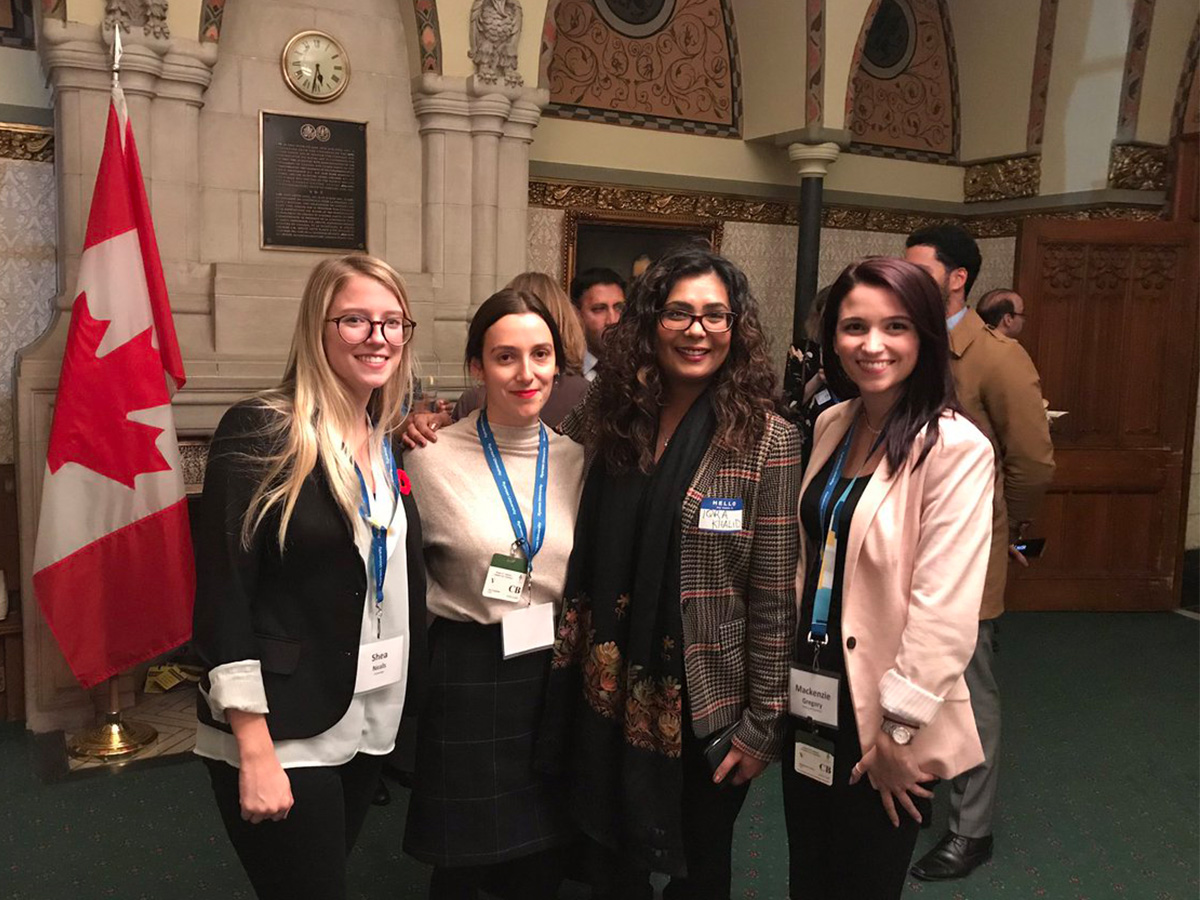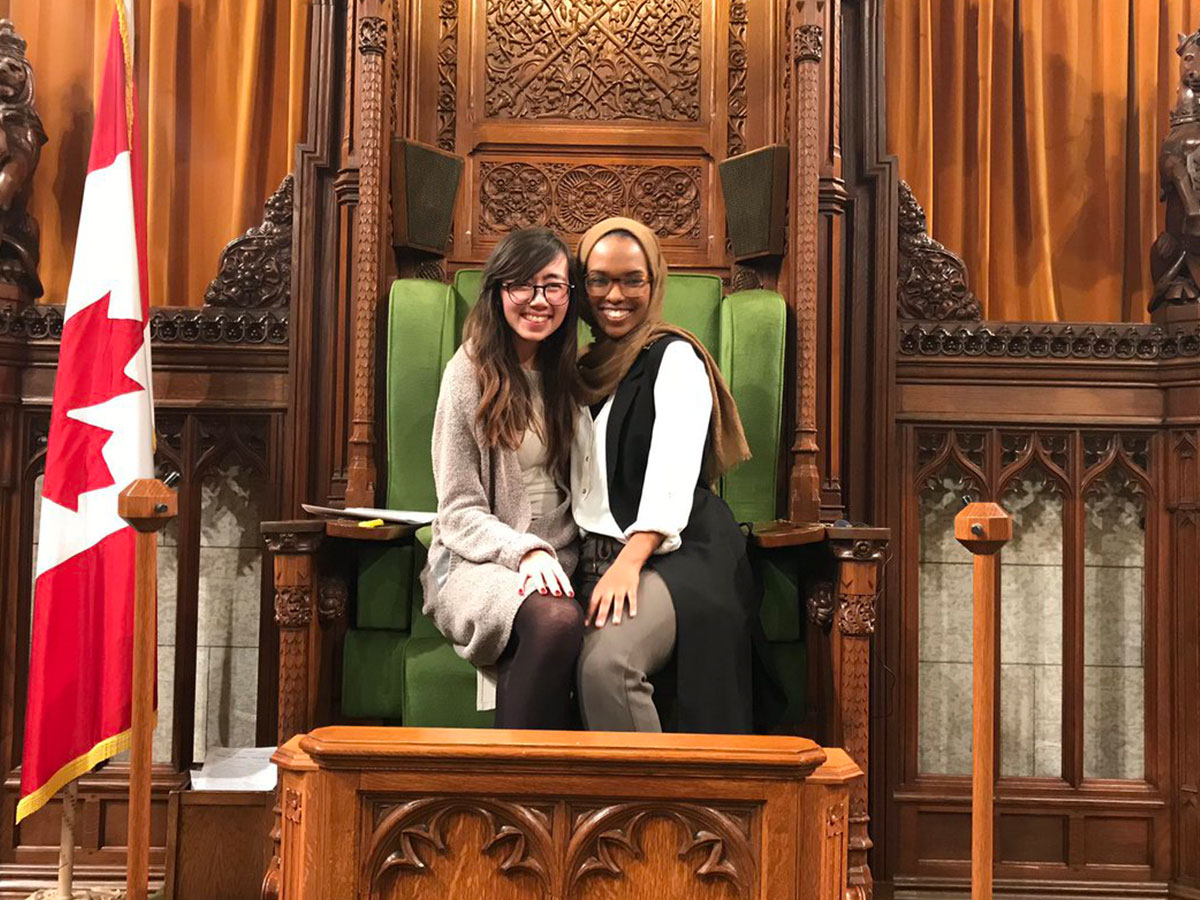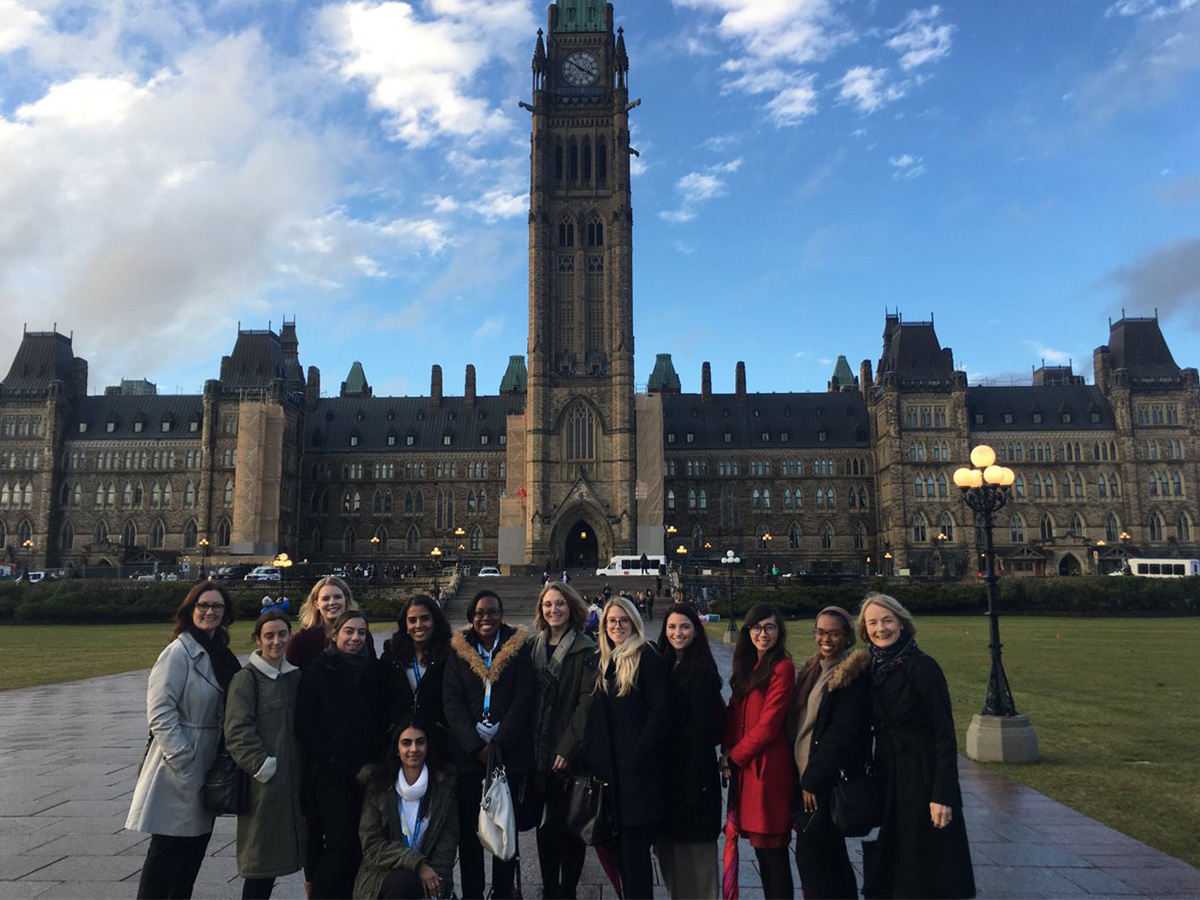Women in the House
By Suelan Toye
Tracey Raney, a political science professor in the Faculty of Arts, has been teaching politics for many years but has been noticing an unsettling pattern. She is finding that female students in her class often do not take up leadership roles during group activities. The professor also found that women are sometimes less willing to voice their political opinions. They also seem less likely than their male classmates to aspire to a career in politics.
“This is often reflected in Canadian politics, as legislatures across the country remain male dominated,” observed Raney.
The facts support the political scientist’s astute observation. Women are chronically underrepresented in Canadian politics. Even though one in two people living in Canada are women, less than one third occupy seats in the House of Commons. In addition, Canada is ranked 60th in the world for its percentage of women elected to federal office.
To help reverse this trend, Raney and Peggy Nash, a veteran politician and distinguished visiting professor at the Faculties of Arts and Community Services, launched a pilot program earlier this fall to encourage women to consider entering politics.
The program, Ryerson Women in the House, was created to give Faculty of Arts upper-year undergraduate and graduate students a unique opportunity to spend two days in Ottawa in early November. There, they would be able to shadow a Member of Parliament, network with politicians, and gain more insight into the often-raucous world of politics.
“The RU Women in the House 2018 pilot program is about empowering young female students in the Faculty of Arts to take their place in the political process,” said Raney.
Nash agrees. The former politician served as the NDP MP for the Parkdale-High riding for two terms in 2006 and 2011. “We wanted to create a program to connect federal female politicians from all parties with our students with the goal of them seeing that Canada’s Parliament is a place where they belong and are needed.”
To that end, 12 female students – cutting a wide swath of disciplines from psychology and politics to environment and urban sustainability – boarded a train from Toronto on November 5 bound for Canada’s capital. Over the next two days, their packed schedule was filled with shadowing MPs to get a glimpse of their work life, taking in Question Period, observing media scrums with politicians, and networking with them over lunch.
This is how the program influenced some of the students in the program:
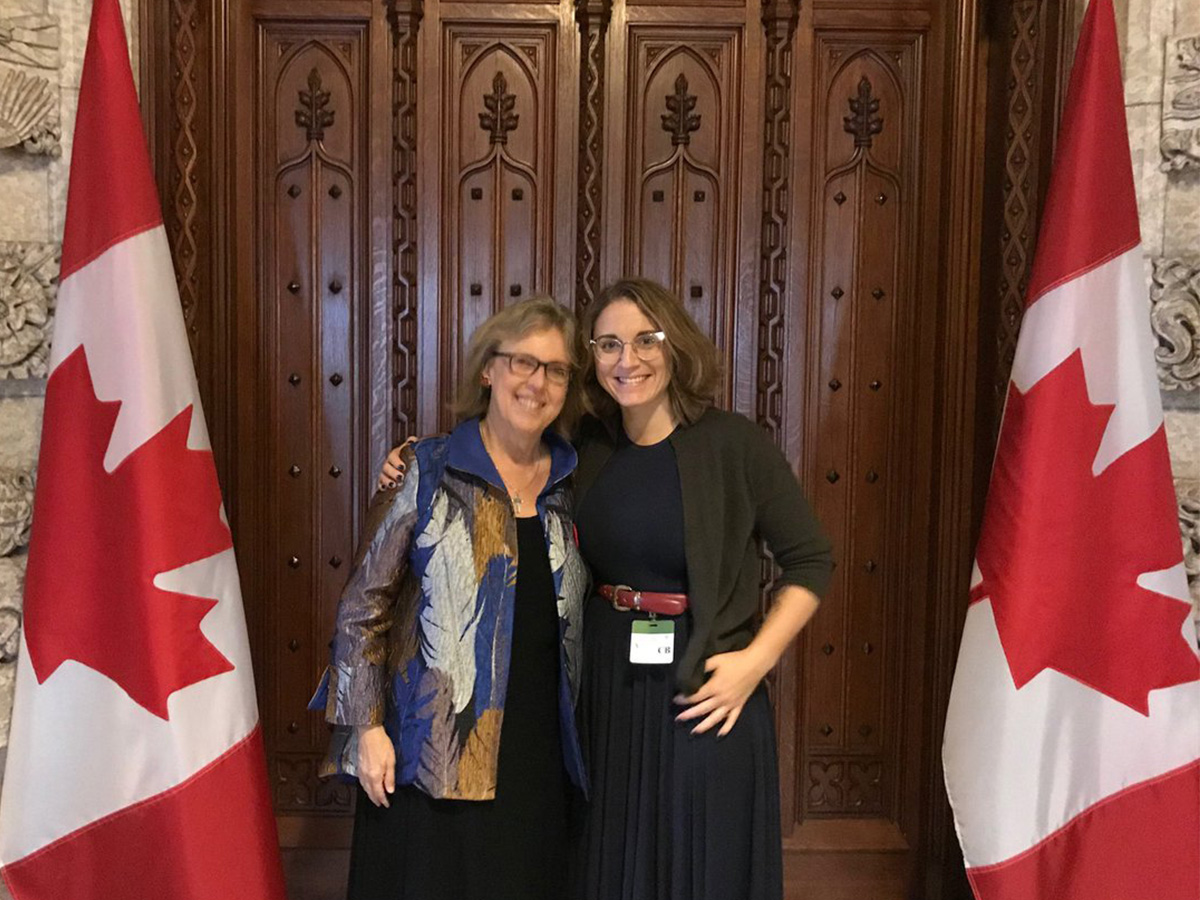
Tess Van Den Bosch, fourth-year, Environment and Urban Sustainability
What inspired you to apply for the program?
My greatest desire is to be the change I wish to see. While studying environment and urban sustainability at Ryerson, it has become increasingly clear to me that politics plays a critical role in [creating] systemic change. I see creating transformation at the community level, where I believe paradigm shifts in societal construction are most visible.
What were some of the best moments of the trip for you?
Beyond the camaraderie build between my colleagues and leaders in the program, it was an honour and privilege to spend time job shadowing Green Party Leader Elizabeth May. She works with passion and care for not only those she represents at Parliament, but for what she believes is the great good of all. Even more surprising was to see how people interacted at the Hill. What we often see is the dramatics of Question Period, so to discover there was sincere cordiality across party lines gave me greater hope for the future of Canada.
What impact did this program have on you?
The stories and actions of everyone I met has shown me that knowledge is not power without vulnerability, connectivity and tenacity. To meet so many people who have embraced this is a gift that will continue to give through my work, my passions and pursuits. I am grateful for this opportunity and am confident that programs like these are necessary to encourage all forms of leadership from women and gender minorities.
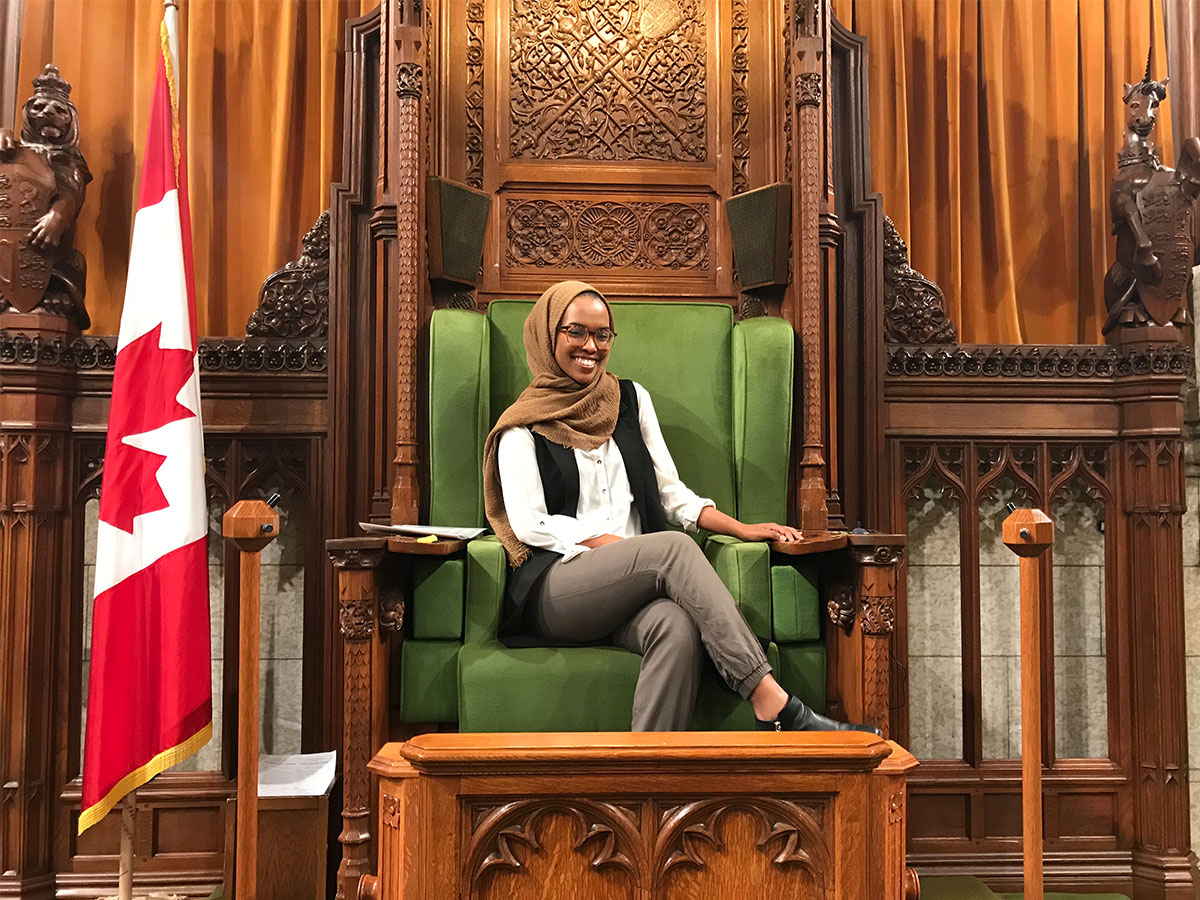
Samira Warsame, candidate, Masters of Immigration and Settlement Studies
What inspired you to apply for the program?
I was inspired by the idea of being able to learn from amazing racialized women in Parliament and sharing the knowledge with people from my community. This is in the hopes to encourage others to get out of their comfort zone and take up space in roles the have historically been excluded from.
What were some of the best moments of the trip for you?
My favourite moments were definitely having one-on-one time with MP Iqra Khalid; she was amazing. She took me on her own mini tour of Parliament while we discussed her experiences there and how they have grown to shape her. Definitely an insightful experience.
What impact do you feel this program had on you as someone who is interested in the field of politics?
I think this influenced me in a significant way. I never really was too involved in politics, but I learned about the many ways in which I can participate in politics – whether it's canvasing and campaigning or becoming an MP myself. The trip was a reminder that there are many doors open for me in life.
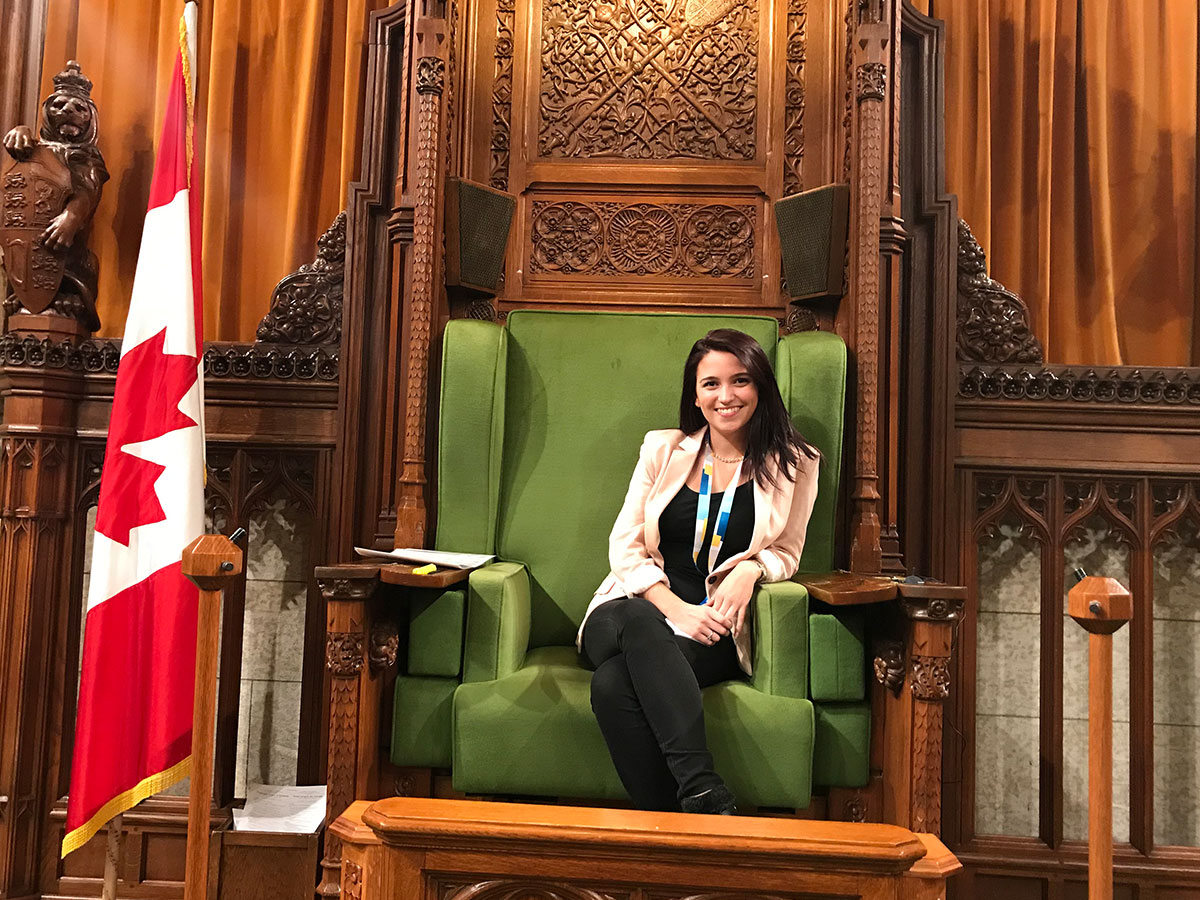
Mackenzie Gregory, fourth-year, Politics and Governance
What inspired you to apply for the program?
I was approached by Tracey in the summer to come on board and work on the program. I agreed to join the pilot program because I have a passion for feminist issues. I took Women and Comparative Politics in third year. This class opened my eyes to the gross misrepresentation of women in legislatures around the world. I figured this project would be a great way to make a mark and influence young women to pursue office.
What were some of the best moments of the trip for you?
Sitting in the speakers chair was beyond empowering and truly a once in a lifetime opportunity.
What impact do you feel this program had on you as someone who is interested in the field of politics?
This trip re-affirmed my desire to enter politics and gave me the confidence to pursue political office. There is a sisterhood within the house and women will support each other, even across the aisle, this was very humbling to hear.
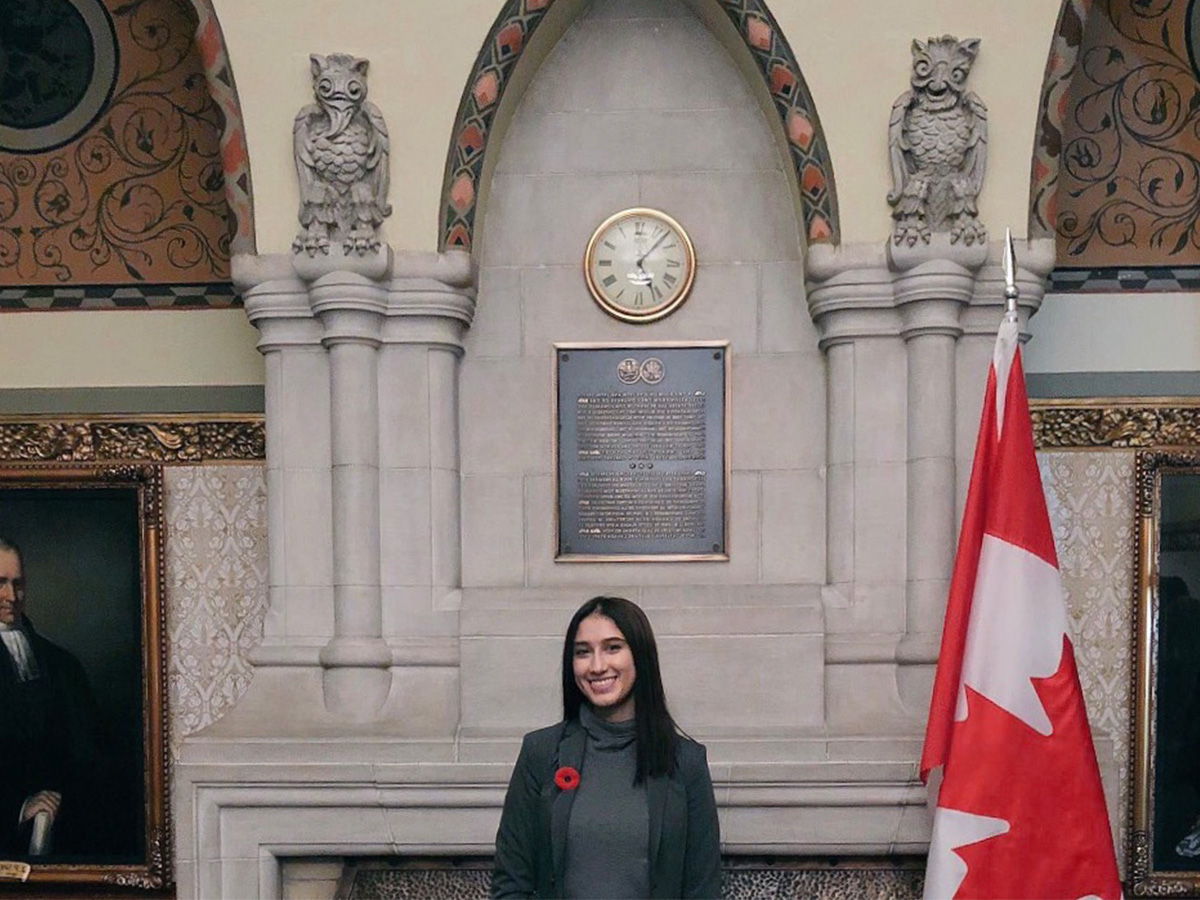
Yelda Nuri, third-year, Politics and Governance
What inspired you to apply for the program?
I have always been passionate about advocating for the rights of minority children and women, particularly the ones in my home country of Afghanistan. I applied to this program to gain insight on what it is like to sit in Parliament. I aspire to be a lawyer, and eventually a Supreme Court judge. This has been a life-long dream of mine. I have also had a deep fascination with politics so getting a first-hand experience in Parliament is a dream come true.
What were some of the best moments of the trip for you?
Some of the best moments for me was speaking to the Honourable Bardish Chagger, Leader of the Government in the House of Commons. We talked about the importance of building the confidence to get past the self-doubt that many women have when considering a career in politics. She was very inspiring and motivating.
What impact did this program have on you?
I feel that the Women in the House initiative gave me the confidence I previously lacked. I met many inspiring MPs and Ministers whose stories and words motivated me to pursue my dreams of going into politics. Being told by someone in the House of Commons to run for government meant a lot to me in terms of gaining the confidence in myself.
The Women in the House is just one of several opportunities where students across the university can learn about democratic engagement. In fact, Nash has also organized a lecture series this fall, Feminisms and Transformative Change, which has shone a light on the political journeys of female MPs and leadership in non-profit organizations. In addition, the Democracy Engagement Exchange and the Ryerson Leadership Lab brought 20 students on an exchange (external link) to Chicago in October. Organized by CanStudyUS (external link) , students met with leaders running for office, senior policy advisors and campaign strategists, all on the eve of the hotly contested U.S. midterm elections. Starting in January, Professor Sanjay Ruparelia, the inaugural Jarislowsky Democracy Chair at the Faculty Arts, will play a leading role in the study of democracy and democratic engagement at the university.
